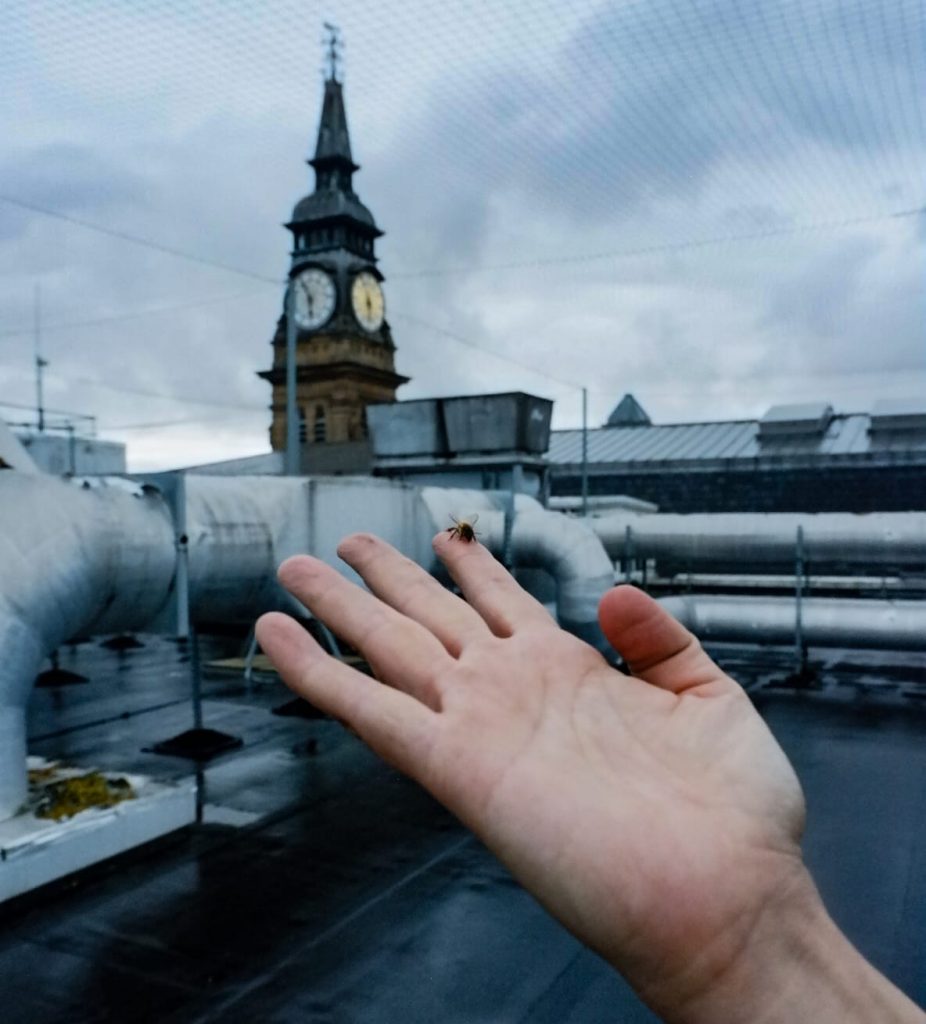Honeybees are active throughout the year in UK, but their activity reduces significantly during the colder months. As the days grow shorter and the temperatures drop below 10 degrees, bees can enter a period of dormancy known as winter clustering. During this time, they huddle together in a tight ball to conserve heat and energy and protect their Queen. When temperatures drop below 10 degrees they huddle within the hive to keep warm and protect the queen.
Being hive-bound for a lot of the winter means their honey stores provide a crucial lifeline, keeping up their energy levels.
Here are a few tips for caring for bee hives in the winter:
1. Make sure your hives have enough honey:
- Inspect your hives in Autumn to make sure they have plenty of honey. If they do not, you will need to feed them sugar syrup.
- There are a few different ways to feed bees sugar syrup. One way is to use a frame feeder, which is a plastic container that fits inside the hive. Another way is to use a hive-top feeder, which is a container that sits on top of the hive.
- No matter which method you use, make sure to use a 1:1 ratio of sugar to water.
2. Insulate your hives:
- In colder climates, it is a good idea to insulate your hives to help them retain heat. You can use a variety of materials to insulate your hives, such as straw, cardboard, or foam insulation.
- Just be sure to leave a small entrance for the bees to come and go.
3. Protect your hives from the elements:
- Make sure your hives are located in a place where they are protected from the wind, rain, and snow. You can also wrap your hives with winterising wrap, which is a type of insulation that is specifically designed for bee hives.
- If you live in an area with a lot of snow, you may need to build a windbreak around your hives to protect them from the elements.
Additional Tips
- Keep your hives clean and free of debris.
- Inspect your hives regularly for signs of disease or pests and treat accordingly.
- Replace any old or damaged hive equipment.
- Provide your bees with a fresh water source nearby.
- Talk to other beekeepers in your area for advice and support.
By following these tips, you can help your bee hives survive the winter and come out strong in the spring.
The Atkinson is working with B4Biodiversity.
Bees are incredibly important insects that play a vital role in our ecosystem. They are responsible for pollinating many of the plants that we rely on for food, including fruits, vegetables, and nuts. Without bees, our food supply would be severely impacted.
Find out more about our beekeeping journey here.
Posted on 6 November 2023 under Bees







